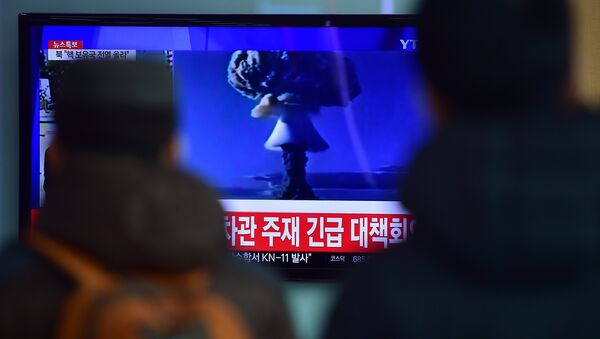MOSCOW (Sputnik) — On Wednesday, North Korea claimed it had carried out the first test of a hydrogen bomb. The move triggered deep concern of the international community over the possible threat to both regional and global peace and security.
"[CTBT Executive Secretary] Lassina Zerbo will immediately return from vacation to Vienna. Tomorrow afternoon a meeting is planned by the preparatory commission," Vladimir Voronkov said.
According to Voronkov, the meeting will take into the account the results of a UN Security Council session which was convened by Japan earlier in the day. During the meeting, the members of the council condemned the test and said they would work towards new significant measures in a new resolution.
On Wednesday, South Korean media reported an earthquake near the North Korean nuclear facility, prompting Seoul's suspicions that Pyongyang had performed another nuclear test. Despite the suspicions and Pyongnayg’s announcement, international organizations and experts refrained from confirming that North Korea had carried out a hydrogen bomb test, while the analysis of the seismic activity could take up to open month.
In 2003, North Korea withdrew from the international Nuclear Non-Proliferation Treaty (NPT), intended to prevent the spread of nuclear weapons manufacturing and possible use. Following Pyongyang's withdrawal, the so-called Six-Party Talks were launched to ease the threat posed by North Korea's nuclear program through negotiations involving Russia, China, the United States, South Korea and Japan.
Pyongyang declared itself a nuclear power in 2005 and walked out of six-party talks after conducting a series of nuclear weapon tests nearly four years later.



